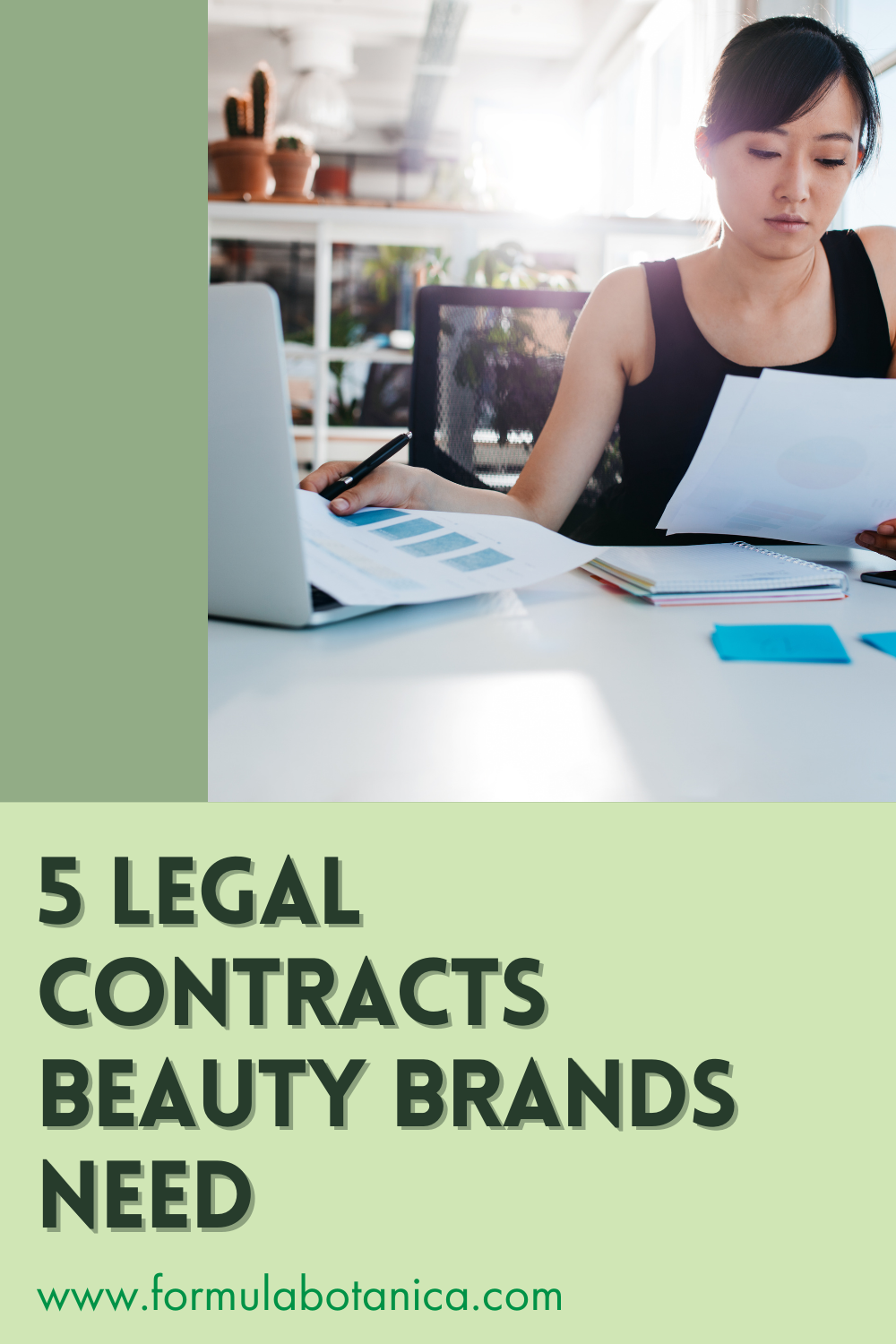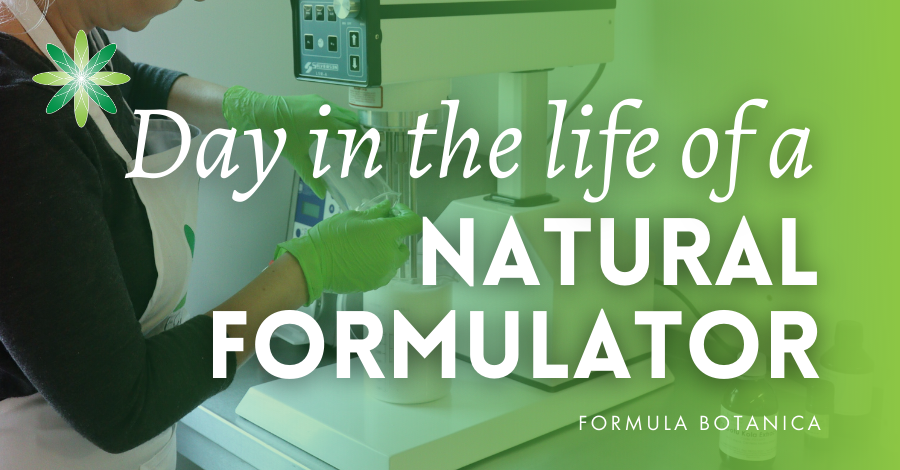When you first get started with your exciting new beauty business, the last thing on your mind are the legal contracts beauty brands need to build a solid foundation. You may think it costs a fortune to hire a lawyer and therefore you plan to do everything yourself, or just skip the stage of drawing up and signing legal contracts. Legal requirements are often seen as a huge burden for any small business owner and many beauty entrepreneurs avoid contracts altogether for that reason.
You may not be familiar with all necessary legal terminology. In fact, you may not even have considered the legal requirements for setting up your own beauty brand. It is important that you get up to speed with all legal contracts for your beauty business, particularly if you consider outsourcing formulation production to a manufacturer or wish to protect your Intellectual Property.
In this blog post, we show you that it is a necessity to incorporate legal contracts into your business and run you through the 5 most important types of legal contracts you should consider.
Checklist: 5 Key Legal Contracts Beauty Brands Need
1. Non-Disclosure Agreements (NDA)
A Non-Disclosure Agreement (NDA) or confidentiality agreement is a legally-binding document signed between two parties that keeps information between those two parties confidential. You might have information that you, as the ‘disclosing party’, would want to share with a particular person or company but that you do not want anyone else to have access to. NDAs are very commonplace in business, particularly when you want to keep specific information confidential.
It is worth noting that most confidentiality agreements or NDAs are used more as deterrents than legal documents. If your NDA is robust, then it will only hold if the case is taken to court, which is an expensive, stressful and time-consuming process. You also have to prove with evidence how the information was leaked and because this is usually very difficult to prove, most claims do not even get to court. Keep in mind that enforcing a NDA is hard to do and someone would generally only go to court over a NDA if the information that was shared would have a devastating impact on your business.
2. Intellectual Property: Trademarks
A trademark is a recognisable sign, design or slogan that allows someone to identify your beauty brand. Your trademark is unique to your business – think of it as a badge to identify your origin. Although it isn’t a legal ‘contract’ as such, trademarks have to be used in a commercial setting and must be registered and paid for. Once you register a trademark, it has a 10-year span of protection in some countries (e.g. the EU) and a lifetime span in others.
As soon as you begin thinking of brand names, you should start researching whether that name has claims on it already. This process is critical before you start manufacturing, packaging and investing in marketing and digital strategies for your brand. If you have not done your due diligence, all that hard work may be wasted and you will need to change everything because someone else has claim to that trademark.
Watch more:
3. Employment Contracts
Everyone who works for you as an employee should know what is expected of them and have a proper employment contract in place. An employment contract provides protection for both parties and clearly defines the roles and responsibilities.
While keeping your team happy is very important for productivity, some business owners overlook the importance of a good employment contract because they believe that generally people will always do the right thing. Unfortunately, this is not always the case and disagreements can lead to arguments, legal claims and even loss of your IP or customer information, which means you may have inadvertently created a competitor. Hiring employees involves creating an entire onboarding process, as well as setting up a payroll, creating HR policies and providing additional perks of the job.
When you a hire a contractor, you will need to get them to sign a service agreement. Even though they are not an employee, you must still protect your company with a contract that sets out exactly what work they will undertake for you, how much you’ve agreed to pay them, when you pay and the fact that they are not an employee. It also includes confidentiality, Intellectual Property and data protection clauses. The contract will specify the duration of their work with your beauty brand and give both you and the contractor the rights to terminate the contract under specific conditions.
4. Manufacturing Contracts
Given the importance of a manufacturing contract to your business, we strongly recommend hiring a lawyer to help you prepare a manufacturing contract. It will be specific to your beauty brand and you should not rely on templates, or even on contracts provided by the manufacturer. Make sure you protect your beauty products and your brand.
It is important to get a good legal contract in place as, if a manufacturer sees how popular a product is, they may decide to make their own version. If your sales go up and you don’t have a contract with your manufacturer, then there is nothing to stop them from creating a similar product and changing a few of the ingredients to produce it as stock for other customers. Although most manufacturers are not interested in stealing your ideas, we are however starting to see more manufacturers and ingredient suppliers create their own beauty ranges.
Starting a beauty business? Don't launch without reading about the key legal contracts beauty brands need #beautypreneur #skincarebusiness #indiebeauty Share on X5. Co-Founder Agreements
When you start your beauty brand, you may decide to become a co-founder and start your brand with a friend or business partner. You will probably get caught up in the excitement of starting a new business and possibly not consider setting up a legal agreement between the two of you.
However, setting up a legal agreement with a co-founder is incredibly important because it will protect both of you and the business if the relationship ever breaks down, if someone wants to leave, or if you bring in an investor. Although future problems may not be something you want to consider when you start your beauty brand, it is very important that you take the time to set up a contract. Your co-founder agreement should specify the details regarding roles and responsibilities, payment terms, equity, termination and intellectual property, as a minimum.
Formula Botanica has several graduates who are co-founders. To see a partnership in action and to pick up some beauty brand start-up advice, watch our webinar with Elsie Rutterford and Dominika Minarovic from BYBI Beauty and Clean Beauty Co.
There will many more legal contracts beauty brands need as they grow, but these are the 5 we recommend starting with when you first set up your business or when you start scaling up. Your beauty brand may be small now, but if it becomes successful then you must make sure that your business is legally protected. You need to protect your brand, your formulations, your products, your employees, your customers and yourself – good legal documents can help with all of this.
If you have experiences – but not confidential information of course – to share on the legal aspects of your business, we’d love to hear about them, especially as legal contracts beauty brands need do vary across the world.
Want to learn more about creating a legal framework for your beauty brand? Pre-register for our Diploma in Beauty Brand Business Management and learn how to turn your natural formulations into a viable business.
FREE TRAINING
Learn how to become an
Organic Skincare Formulator
FREE TRAINING
How to become an
Organic Skincare Entrepreneur
FREE TRAINING
How to become an
Organic Skincare Entrepreneur
Leave us a comment
Lorraine Dallmeier is a Biologist, Chartered Environmentalist and the CEO of Formula Botanica, the award-winning online organic cosmetic science school. Read more about Lorraine and the Formula Botanica Team.

























